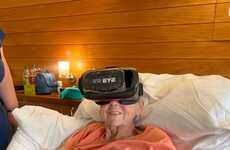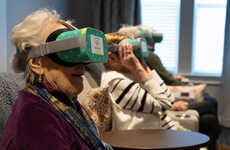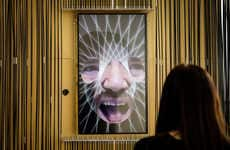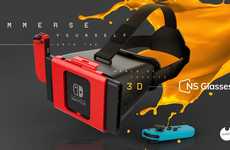
Embodied Labs Wants to Use VR to Teach Empathy to Caregivers
Justin Lam — October 29, 2018 — Lifestyle
References: embodiedlabs & digitaltrends
Virtual reality has the ability to transport users into countless worlds and different lives, but Embodied Labs is looking to do the opposite with its death-simulating VR experience. Based in Los Angeles, Embodied Labs is currently using cutting-edge VR technology to provide something a little more extreme than simple escapism. The developers have already created a VR experience that simulates Alzheimer's disease, and this new death-simulating VR aims to elicit the same notions of empathy.
Designed to train caregivers and medical professionals, Embodied Lab's death-simulating virtual reality experience accurately captures the visuals and sensation before passing. This includes the feeling of sensation dulling and the dimming of eyesight. The experience also deals with the emotional trauma of death, as various characters represent the user's family in the experience.
Designed to train caregivers and medical professionals, Embodied Lab's death-simulating virtual reality experience accurately captures the visuals and sensation before passing. This includes the feeling of sensation dulling and the dimming of eyesight. The experience also deals with the emotional trauma of death, as various characters represent the user's family in the experience.
Trend Themes
1. Death-simulating VR Experiences - Using virtual reality technology to simulate death and evoke empathy.
2. Empathy Training for Caregivers - Using VR to train caregivers and medical professionals to have a deeper understanding of death and its effects.
3. Virtual Reality in Medical Education - Utilizing VR technology to provide realistic training experiences for medical professionals.
Industry Implications
1. Virtual Reality - The virtual reality industry can leverage the use of death-simulating VR experiences to create immersive empathy training programs.
2. Healthcare - The healthcare industry can adopt death-simulating VR experiences to improve empathy and understanding among caregivers and medical professionals.
3. Education - The education industry can incorporate VR technology into medical training programs to provide more realistic and immersive learning experiences.
6
Score
Popularity
Activity
Freshness























